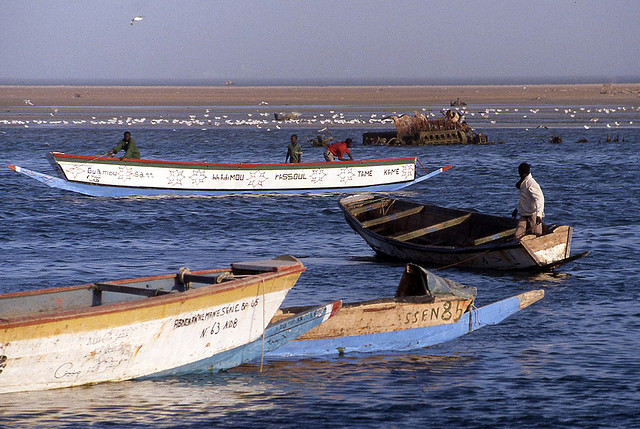The fishing sector will now be included in the Extractive Industries Transparency Initiative (EITI). The official announcement was made by the President of the Islamic Republic of Mauritania, Mr Mohamed Ould Abdel Aziz, on 19 January 2015 in his opening speech at the high-level conference on “Transparency and Sustainable Development in Africa”.
According to statistics from the Mauritanian Ministry of Fishing and the Maritime Economy, the fishing sector represented 6% of gross domestic product (GDP) in 2009. In 2010, the sector generated 16% of the country’s revenues and 13.3% of export revenues.
In terms of their fishing potential, Mauritanian waters are some of the richest in the world, with catches of around 900,000 tonnes a year.
The sector is also a significant source of jobs. In fact, over 30,000 people earn their living from fishing and “the sub-sector of small-scale fishing is by far the leading source of direct job creation,” explains the Ministry. The majority of revenues recorded in Mauritania come from foreign companies with operating licences, mainly based in the European Union, which has a fishing agreement with Mauritania. Under the terms of the agreement, the European Union pays the country a sum of money each year so that its trawlers can fish in Mauritanian waters. Under the agreements signed for 2008-2012, the European Union paid Mauritania €86, €76, €73 and €70 million respectively for the first four years. This is in addition to the fees paid by European fishing vessels.
Mauritania’s decision to extend the scope of the EITI to fishing is seen as the result of advocacy by civil-society organisations in general and the Publish What You Pay (PWYP) coalition in particular. Mohamed Abdallahi, journalist and founder member of the Mauritanian PWYP coalition, explains that “we have been demanding the inclusion of the fishing sector in the EITI for years, given the economic importance of the sector and its capacity to generate financial resources for sustainable development in Mauritania”. He explains that, although the government was initially reticent about the extension, it subsequently changed its view, in particular thanks to the support provided to Mauritania by the World Bank to organise the sector more effectively. “The fishing sector could help drive sustainable development since, unlike mines, oil and gas, fish stocks are renewable,” he concludes.
Nonetheless, it is important to note that even though fish stocks are a renewable resource, good management and controlled use are needed on the one hand, to avoid an increasing scarcity of certain species, even to the point of extinction, and on the other, to help maintain the jobs created by small-scale fishing. Indeed, overexploitation of fish stocks as a result of industrial fishing presents a danger to the survival of small-scale fishing. Senegal is a case in point: its waters have been stripped bare to the extent that Senegalese fishermen have turned to Mauritania so that they can continue to work. Senegal has negotiated fishing agreements with Mauritania as a result. Under the terms of these agreements, in 2014 Senegal was granted “400 fishing licences for the capture of 50,000 tonnes of fish, 12,000 tonnes of which will be landed in Mauritania,” according to the EITI Permanent Secretariat in Mauritania. Senegal pays Mauritania €747,000 in return.
Including fishing in the scope of EITI will unquestionably increase transparency in the sector, as it will now be possible to obtain exhaustive information on the income generated by the activity and monitor how it is used. According to Ba Aliou Coulibaly, Technical Coordinator for PWYP Mauritania, extending the EITI to fishing is not an isolated fact. In reality, it is a good opportunity for civil-society organisations to engage in monitoring and advocacy, making use, in particular, of the opportunity provided by European directives with regard to obligatory disclosure of income from the extractive industries. “As the European Union is Mauritania’s main partner in the fishing industry, we believe that the directives on obligatory disclosure that are currently being transposed into law in the Member States will provide access to reliable information on the payments made by the companies that exploit our resources,” concludes Coulibaly.









